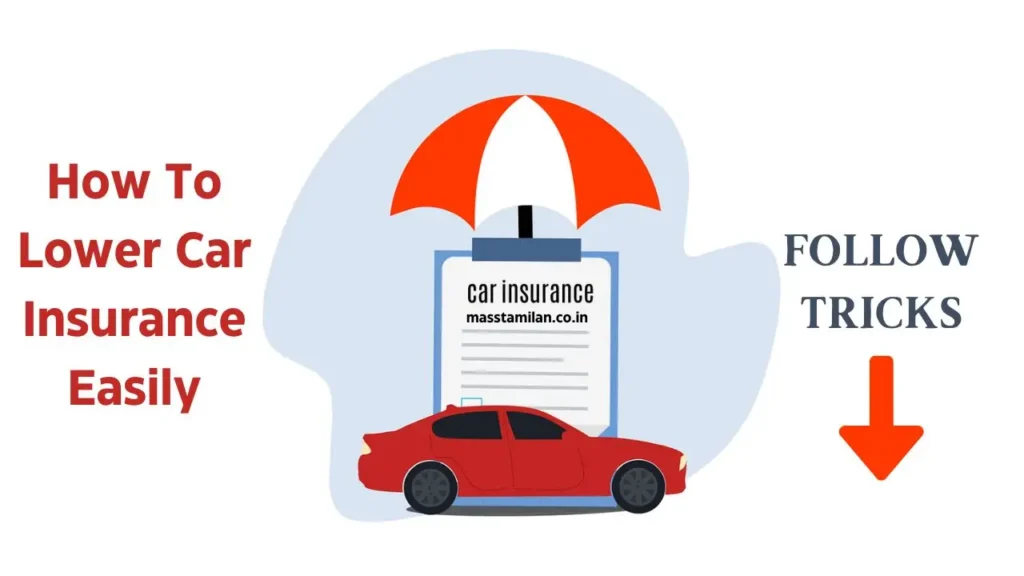Paying for automobile insurance is often a necessary but expensive part of being a car owner. However, you don’t have to settle for high premiums. There are several proven ways to reduce your insurance costs while still maintaining solid coverage. In this article, we’ll walk you through practical and effective strategies to lower your car insurance premiums.
Mortgage Lenders in USA (2025): Know Here
How Car Insurance Premiums Are Determined
Before you start exploring ways to reduce your Automobile Insurance premiums, it’s important to understand how they are calculated. Your driving habits, the kind of vehicle you drive, your credit score, and your residence are just a few of the variables that auto insurance companies consider when calculating your rate.

Car Insurance – Get an Automotive Insurance Quote
Key Factors Affecting Your Automobile Insurance Premium
Here’s a breakdown of the factors that insurers consider when setting your rates:
| Factor | Effect on Your Premium |
|---|---|
| Clean Driving Record | Lowers premium |
| Expensive Vehicle | Increases premium |
| Young Driver | Increases premium |
| High Traffic Area | Increases premium due to higher risks |
Different Types of Coverage
Insurance premiums can also vary based on the type of coverage you select. Here are the main types:
- Liability Coverage: Liability insurance protects against harm to other people when you are at fault.
- Collision Coverage: Covers auto repairs following a collision.
- Comprehensive Coverage: Protects against natural calamities, theft, and vandalism.
- Uninsured/Underinsured Motorist:Provides protection if the other driver is not covered by insurance.

Understanding Car Insurance Quotes: Factors, Tips, and How to Save
Simple Ways to Lower Your Automobile Insurance Premiums
Now that you know the factors that influence your premiums, let’s dive into some actionable tips for reducing your costs.
1. Shop Around for Better Rates
The first and most important step in lowering your car insurance premiums is to shop around. Insurance providers often have different pricing structures, so comparing quotes from various companies is essential. Use online comparison tools to streamline the process and find the best offer for the coverage you need.
2. Bundle Your Insurance Policies
If you already have homeowners, renters, or life insurance, consider bundling them with your auto insurance. Many insurance companies offer discounts (up to 25%) when you combine multiple policies. This is an easy way to reduce your total insurance costs.
3. Increase Your Deductible
Your deductible is the amount you pay out-of-pocket before your insurance covers the rest of the costs. You can drastically reduce your premium by raising your deductible. However, make sure you choose a deductible amount that you can comfortably afford in case you need to file a claim.
4. Improve Your Credit Score
Many insurers use your credit score to assess your premium. People with better credit scores are often offered lower premiums because they’re seen as less risky. To improve your credit score, focus on paying off outstanding debts, avoiding late payments, and reducing your overall credit utilization.
| Action | Potential Savings |
|---|---|
| Compare Quotes | Could save 15%-30% depending on providers |
| Bundle Policies | Discounts of up to 25% on combined policies |
| Raise Your Deductible | Reduces premium by 10%-25% |
| Improve Credit Score | Can lower premiums by 10%-40% |
Long-Term Strategies for Automobile Insurance Savings
While the above tips offer immediate ways to reduce your premiums, there are long-term strategies that can continue to save you money over the years.
1. Reduce Your Mileage
If you don’t drive much, ask your insurance company about a low-mileage discount. Insurance companies usually lower premiums for drivers who use their vehicles less often because the risk of accidents is lower. Consider using public transport, carpooling, or even working from home to cut down on your driving.
2. Choose a Car That’s Affordable to Insure
The type of car you drive has a major impact on your premiums. High-performance sports cars and luxury vehicles tend to have higher premiums due to their higher repair and replacement costs. When buying a new car, consider factors like safety ratings and repair costs to find a vehicle that’s cheaper to insure.
3. Drop Unnecessary Coverage on Older Vehicles
If you’re driving an older car, its market value may be low. In this case, it might make sense to drop collision or comprehensive coverage. If your car’s value is low enough, you might not need these coverages since the payout from a claim might not justify the cost of coverage.
Conclusion
Lowering your Automobile Insurance premiums doesn’t have to be complicated. By implementing these straightforward strategies—comparing quotes, bundling policies, raising your deductible, and maintaining good credit—you can save money while still keeping your car well-covered. Don’t forget to regularly review your policy and adjust your coverage as your circumstances change.
FAQs
1. How can I save on Automobile Insurance if I have a poor driving history?
Even with a bad driving record, you can save on insurance by completing a defensive driving course, which could help you qualify for discounts. Avoiding further traffic violations and keeping your record clean will also help over time.
2. Is it possible to reduce my insurance without switching companies?
Yes, many insurers allow you to adjust your coverage or raise your deductible to lower your premiums. You can also ask your provider about discounts you may not be using.
3. Does the color of my car affect my premiums?
No, the color of your car does not influence your premium. Insurers focus on the make, model, safety features, and repair costs of your car.
4. Should I raise my deductible to lower premiums?
Your premium may be reduced by raising your deductible, but be sure you can afford the increased out-of-pocket expenses in the case of a claim.
5. How often should I shop around for new Automobile Insurance quotes?
It’s a good idea to shop for new quotes at least once a year. Insurance rates can fluctuate, and your situation may change, making it possible to find better deals.


